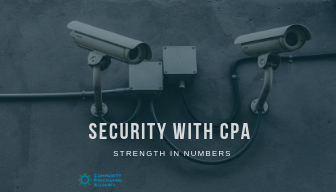One of things that I wish my seminary would have offered when I was a student was a course on church facility management. I soon discovered, upon entering my first pastorate, that the maintenance cost of the church facility can severely hinder the congregation’s ability to fund the operating and programmatic side of ministry. Every dollar spent on the electric bill, trash pickup, cleaning, and building repairs was a dollar not spent on furthering the work and mission of the church. While these expenses are a necessary part of being a property-owning congregation, pastors and trustees are often confronted with decisions amidst complex industries, misleading sales tactics, and burdensome contracts. We do not always have the time or capacity to ensure that we get the best pricing by researching policies, vetting vendors, and getting multiple bids for all of our facility needs. As a result, we often end up paying more than we should for the basic services that ensure we can keep the building and our ministry up and running.
Read MoreWhen the Dupont Commons affordable housing development was approved 15 years ago in the Fort Dupont neighborhood of Southeast Washington DC, housing density required that a substantial parcel be left open to meet building codes. That land became something of a blight; it required basic maintenance, accrued stormwater management fees, and was littered with garbage and illegal dumping. Joe Naroditsky, Director of Solar Programs for CPA, spent two and a half years pitching the land to solar companies, but kept hearing that the terrain wasn’t ideal for solar panel placement and that the project seemed daunting because the costs of development were uncertain.
Read MoreIt’s not hard to see the great work that CPA is doing. The cooperative has brought hundreds of organizations together. And, together, these organizations have invested nearly $10 million in minority-owned businesses. Together, these organizations have redirected hundreds of thousands of dollars to renewable electricity and away from fossil fuels. Together, these organizations have contracted with facility cleaning companies that pay employees a living wage. But CPA does something else with all this togetherness—perhaps less intentionally—that gets me really excited as a Christian: CPA is radically healing the divisions in the church body.
Read MoreI’ve heard some nightmarish HVAC tales, stories of success, and mostly lots of frustration, confusion, and anxiety around dealing with a building’s costliest and most complex systems.
These stories stem from the people who run many of our CPA member organizations - church administrators, school-based facility managers, and synagogue Executive Directors. They’ve been telling me about how they approach preventative maintenance (quarterly checkups vs. wait til it breaks), the ups and downs of service tech quality (some are trustworthy while others needed to be babysat), and how a new $2 Million system never worked quite right (and still doesn’t).
What I’ve learned that impressed me the most is that many have done an incredible job keeping old systems operating for decades, through a combination of regular maintenance, emergency repairs, and a little bit of duct tape and prayer.
Read MoreAs CPA deepens its investment in the DC region and continues to look to growth in new regions, we convened a group of inspiring partners and entrepreneurial strategists interacting with the church and co-op sectors today. In a recent video call, our Executive Director, Felipe Witchger, reached out to colleagues across disciplines to do just that.
Read MoreIs it your full time job to manage a facility? Perhaps you have years of experience behind you, and you feel confident in your property know-how. OR maybe you are like Rev. Martha Clark at St. Augustine’s Episcopal in DC. She told our ED Felipe last week that at her church “none of us are property savvy at all.”
Click the video below to hear Rev. Clark share her testimonial of working with on of our preferred vendors.
Read MoreWe invited leaders in our member network to share their experience and insights to ensure that your next Janitorial RFP will run as smoothly as possible. Click to watch our video and learn more.
Read MoreCPA Co-op is growing! Building on our success in DC, we are launching a new co-op in Durham, North Carolina.
Read MoreCPA helps 21 community institutions (mostly schools) procure $2.5 million per year in security staffing. Hourly rates range from $30-50 per hour for armed guards & off-duty police offers. More consistent scheduling (i.e. 20hrs/week), helps secure lower rates.
Read MoreI watched the clean energy movement fall short in 2009 as climate policy failed to pass in the US Senate by one vote. After over a decade of work in energy analysis and procurement, I believe this movement failed because it did not have a clear understanding of how the utility sector works.
Read More











